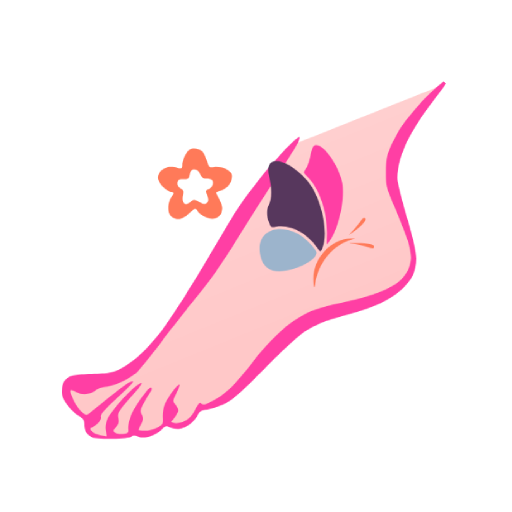Do you often find yourself tossing and turning in bed, unable to escape the discomfort of achy legs? If so, you’re not alone. Many people experience leg pain at night, which can be frustrating and sleep-disrupting. In this article, we will delve into the various reasons why your legs might ache at night and explore potential solutions to help you get a good night’s rest.
Understanding Nocturnal Leg Pain
What is Nocturnal Leg Pain?
Nocturnal leg pain refers to discomfort, cramps, or aching sensations in the legs that occur specifically at night. It can vary in intensity and may affect one or both legs. This phenomenon can disrupt your sleep pattern, leaving you tired and irritable during the day.
Causes of Nighttime Leg Pain
Poor Circulation
Inadequate blood flow to the legs can lead to cramps and discomfort. This can be caused by prolonged sitting or standing during the day.
Dehydration
Not consuming enough water can lead to muscle cramps, including those in the legs. Staying hydrated is crucial to prevent this.
Overexertion
Exercising vigorously before bedtime may strain your leg muscles, causing nighttime pain. It’s advisable to allow your body to rest and recover.
Vitamin and Mineral Deficiencies
A lack of essential nutrients like potassium, calcium, and magnesium can contribute to muscle cramps and aching legs.
Medications
Certain medications can have side effects that include leg pain. If you suspect this might be the cause, consult your healthcare provider.
Underlying Health Conditions
Chronic conditions like diabetes, peripheral neuropathy, and arthritis can lead to nocturnal leg pain. Managing these conditions is essential.
What Are Aching Legs a Symptom Of?
Aching legs can be symptomatic of various underlying issues. It’s crucial to identify the root cause to address the problem effectively. Common causes include:
Muscle Fatigue
One of the primary reasons for leg pain at night is muscle fatigue. This can result from excessive daily physical activity or a lack of proper hydration.

Restless Leg Syndrome (RLS)
RLS is a neurological disorder characterized by an irresistible urge to move the legs, often accompanied by uncomfortable sensations. It tends to worsen at night, leading to disrupted sleep.
Poor Circulation
Inadequate blood flow to the legs can cause discomfort and pain. Conditions like peripheral artery disease (PAD) can lead to reduced circulation.
Overexertion
Sometimes, overexerting yourself during the day, whether through strenuous exercise or prolonged standing, can lead to leg discomfort at night.
When Should I Worry About Achy Legs?
While occasional leg discomfort is joint, sure signs should prompt concern:
Persistent Pain
If your leg pain persists for an extended period, consult a healthcare professional. Chronic pain may be indicative of an underlying issue.
Swelling or Redness
Any noticeable swelling, redness, or warmth in the affected leg could indicate a more severe condition, such as deep vein thrombosis (DVT).
Why Do My Legs Ache at Night?
— Sellfeetpics (@sellfeetpicsco) October 2, 2023
🌝https://t.co/b5yRPSpWHZ#sellfeetpics #feetcare #feetbeauty #is selling feet pics dangerous #how can you earn money from selling feet pics pic.twitter.com/1xEnYuWQTI
Numbness or Weakness
Experiencing numbness or weakness in your legs, especially if it’s sudden and accompanied by pain, warrants immediate medical attention.
Managing Nighttime Leg Aches
Now that we’ve explored the potential causes and when to be concerned, let’s delve into practical strategies to alleviate nighttime leg pain:
Stretching
Incorporate gentle leg stretches into your bedtime routine to relieve muscle tension. Focus on calves, hamstrings, and quadriceps.
Massage
A soothing leg massage using a calming lotion can promote relaxation and improve blood circulation.

Warm Bath
A warm bath before bedtime can relax your muscles and ease discomfort. Consider adding Epsom salts for added relief.
Hydration
Ensure you stay hydrated throughout the day to prevent muscle cramps and fatigue.
Comfortable Sleep Environment
Invest in a comfortable mattress and pillows that properly support your legs and body.
Medication and Supplements
Consult your healthcare provider about over-the-counter pain relievers or supplements that may help alleviate leg discomfort.
Why Do My Legs Ache at Night After Walking
Experiencing leg aches at night after walking can be attributed to several factors.
- One of the primary reasons is muscle fatigue.
- When you walk or engage in physical activity during the day, your leg muscles work hard, and sometimes they become overworked or strained.
- This can lead to discomfort and aching sensations later in the evening.
Additionally, poor circulation may play a role, as prolonged walking can sometimes hinder blood flow to the legs.
Ensuring adequate hydration, proper warm-up and cool-down exercises, and wearing comfortable, supportive footwear can help alleviate these nighttime leg aches and make your post-walking evenings more comfortable.
Coping with Nocturnal Leg Pain
Gentle Stretching
Before bedtime, perform light stretching exercises for your legs to relieve tension and improve circulation.
Hydration
Drink plenty of water throughout the day to prevent dehydration-induced leg cramps.
Warm Baths
A warm bath before bedtime can relax your muscles and alleviate discomfort.
Supportive Footwear
Wearing comfortable shoes with proper arch support during the day can reduce leg pain at night.

Medication Adjustment
If you suspect your medication is causing leg pain, consult your doctor to explore alternative options.
Conclusion
Nighttime leg pain can significantly hinder a peaceful night’s sleep. By understanding the potential causes and adopting strategies to alleviate discomfort, you can improve the quality of your sleep and overall well-being.
FAQs
Is nighttime leg pain a sign of a severe medical condition?
Nighttime leg pain can be associated with underlying health issues, but it’s not always a cause for alarm. Consult a healthcare professional for an accurate diagnosis.
Can changing my diet help with leg pain at night?
Incorporating foods rich in essential nutrients like potassium and magnesium may help reduce leg pain.
Can stress contribute to nighttime leg pain?
Stress can indirectly impact leg pain by causing muscle tension. Relaxation techniques like deep breathing or meditation may help alleviate stress-related leg discomfort.
Are there specific leg exercises that can help prevent leg pain at night?
Yes, exercises that target leg muscles, such as calf raises and leg stretches, can help strengthen and alleviate discomfort. Consult with a fitness professional for a tailored exercise routine.
When should I consult a healthcare provider about my nighttime leg pain?
Suppose your nighttime leg pain is severe, persistent, or accompanied by other concerning symptoms such as swelling or numbness. In that case, it’s advisable to seek medical advice promptly.








